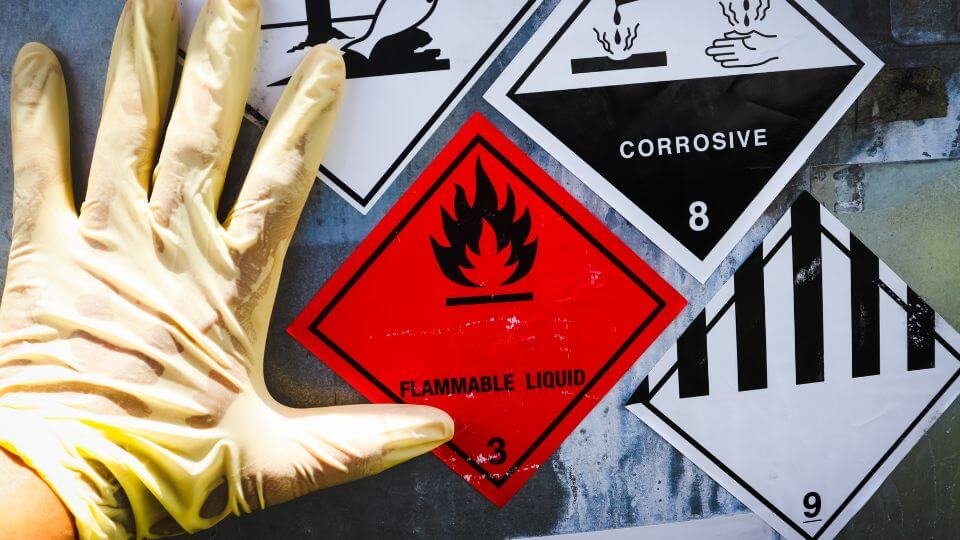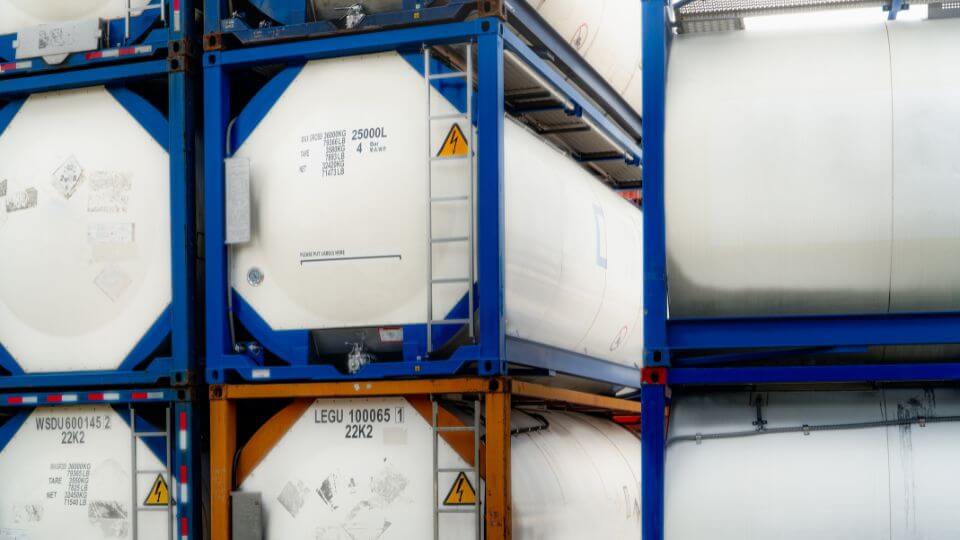Table of Contents
In today’s interconnected global marketplace, the term “supply chain” has become synonymous with the backbone of modern commerce. At the heart of efficient business operations lies the intricate realm of supply chain management. In this comprehensive blog post, we delve deep into the world of supply chains and supply chain management – examining their definitions, components, challenges, and the strategies that fuel successful operations.


Understanding the Supply Chain
A supply chain refers to the network of organizations, processes, resources, and activities involved in the creation, production, distribution, and delivery of goods or services to the end consumer. It encompasses everything from sourcing raw materials to delivering finished products to the hands of consumers. A well-orchestrated supply chain minimizes delays, optimizes costs, and ensures the seamless flow of goods across global markets.
Best-In-Class 3PL in the Midwest
What are the Components of the Supply Chain?
The supply chain consists of several interconnected components that work together to ensure the smooth flow of goods and services from the point of origin to the end consumer. These components encompass various processes and entities that contribute to the overall efficiency of the supply chain. Here are the key components of the supply chain:
- Planning and Strategy: This component involves the strategic decision-making process to anticipate future demand, allocate resources, and set overall supply chain goals and objectives.
- Sourcing: Sourcing involves selecting suppliers and procuring the necessary raw materials, components, and goods required for production. Establishing strong relationships with reliable suppliers is essential for a resilient supply chain.
- Manufacturing or Production: The manufacturing component involves transforming raw materials and components into finished products. This phase aims to optimize production processes, reduce waste, and ensure product quality.
- Distribution and Logistics: Distribution involves the movement of finished products from manufacturing facilities to distribution centers, warehouses, and retailers. Logistics encompass various activities such as transportation, warehousing, order fulfillment, and inventory management.
- Transportation: Transportation involves the movement of goods between different locations in the supply chain, including from suppliers to manufacturers, manufacturers to distributors, and ultimately to retailers or end consumers.
- Warehousing and Storage: Warehousing plays a crucial role in storing and managing inventory. It includes activities such as receiving, storing, picking, packing, and shipping goods to fulfill customer orders.
- Order Fulfillment: Order fulfillment encompasses the processes from receiving customer orders to delivering products to customers. This component ensures accurate order processing, packaging, and timely delivery.
- Reverse Logistics: This component deals with product returns, repairs, recycling, and disposal. Effective management of reverse logistics reduces waste and supports sustainability efforts.
These components interact with one another to create a cohesive and efficient supply chain that delivers products to consumers while optimizing costs, minimizing waste, and enhancing overall customer satisfaction.
Understanding Supply Chain Management?
Supply chain management (SCM) is the strategic coordination and oversight of the various processes, activities, resources, and stakeholders involved in the movement of goods and services from raw material suppliers to end consumers. SCM encompasses the planning, execution, monitoring, and optimization of every step within the supply chain to ensure efficient and effective operations.
The primary goal of supply chain management is to create a seamless and integrated network that maximizes customer value, minimizes costs, enhances operational efficiency, and maintains a competitive edge in the marketplace. SCM involves the orchestration of different components, such as sourcing, manufacturing, distribution, logistics, inventory management, and more, to ensure the timely and accurate delivery of products while aligning with business goals.
What are the Key Aspects of SCM?
Supply chain management involves the strategic planning, coordination, and optimization of every component of the supply chain to maximize efficiency, reduce costs, and enhance customer satisfaction. SCM encompasses a range of activities, including:
- Coordination: SCM involves the coordination and various processes, functions, and departments within an organization and across the entire supply chain network. Effective coordination minimizes bottlenecks and inefficiencies.
- Collaboration: Collaboration with suppliers, manufacturers, distributors, retailers, and other stakeholders is crucial to optimize the supply chain. Strong partnerships facilitate information sharing, efficient resource allocation, and risk mitigation.
- Supplier Relationship Management (SRM): Establish strong partnerships with suppliers. Foster open communication, collaborate on risk management, and work together to ensure timely deliveries and quality materials.
- Demand Forecasting: Accurate demand forecasting is a cornerstone of SCM. By predicting future demand, organizations can plan production, inventory, and distribution activities more effectively.
- Inventory Management: Proper management of inventory levels ensures that products are available when needed without excessive stockpiling. This requires balancing the costs of holding inventory with the risks of shortages.
- Risk Management: Identifying and mitigating potential risks – such as supply disruptions, geopolitical issues, and natural disasters – is essential to maintaining supply chain resilience.
- Technology Implementation: Advanced technologies like data analytics, artificial intelligence, Internet of Things (IoT), and blockchain are increasingly being integrated into SCM to enhance visibility, efficiency, and decision-making.
- Sustainability Initiatives: Modern SCM emphasizes sustainable practices that reduce waste, promote environmental responsibility, and align with ethical standards.
Effective supply chain management not only ensures that products are delivered to customers on time and with high quality but also helps organizations achieve cost savings, competitive advantages, and enhanced customer satisfaction. It is a dynamic and strategic discipline that plays a pivotal role in modern business operations across various industries.
What are the Common Challenges in SCM?
Supply chain management involves a complex interplay of processes, stakeholders, and variables, which can lead to various challenges that organizations need to navigate. These challenges can impact the efficiency, responsiveness, and overall effectiveness of the supply chain. Here are some common challenges in supply chain management:
- Demand Volatility: Fluctuating consumer preferences and market dynamics can disrupt demand patterns.
- Supply Disruptions: Unforeseen events such as natural disasters, geopolitical issues, strikes, and supplier bankruptcies can disrupt the supply chain, causing delays and shortages.
- Inventory Optimization: Balancing optimal inventory levels to meet demand while minimizing carrying costs requires careful planning. Overstocking ties up capital, while understocking leads to stockouts.
- Globalization Complexity: Operating in a global marketplace introduces complexities related to customs regulations, tariffs, cultural differences, and varying legal requirements.
- Lead Time Variability: Variability in lead times, whether due to transportation delays or production uncertainties, can affect planning and cause unexpected disruptions.
- Technology Expenses: Implementing and integrating new technologies like supply chain management software, IoT devices, and data analytics tools may turn out to be expensive.
- Complexity of Products: Complex products with multiple components or customization requirements can lead to challenges in sourcing, production, and coordination.
- Environmental Sustainability: Meeting environmental standards and sustainable practices while maintaining cost-effectiveness can be a balancing act.
- Talent Shortages: Skilled supply chain professionals are in high demand, and organizations may face challenges in recruiting and retaining qualified personnel.
Addressing these challenges requires a strategic approach that involves effective planning, collaboration, technology adoption, risk management, and continuous improvement efforts. Organizations that proactively tackle these challenges can build resilient and efficient supply chains that contribute to their overall success.
Must-Have Strategies for Successful SCM
Successful supply chain management requires a combination of strategies that address various aspects of the supply chain’s complexity. Here are some must-have strategies for your business to ensure effective supply chain management:
- Data-Driven Insights: Harness the potential of data analytics to extract valuable insights into prevailing demand trends, operational efficiency benchmarks, and opportunities for enhancement.
- Collaborative Partnerships: Cultivate robust and symbiotic relationships with suppliers, distributors, and pertinent stakeholders to fortify seamless coordination and information exchange.
- Agile Planning: Develop agile and adaptive supply chain strategies, capable of swiftly responding to dynamic shifts within the market landscape.
- Technology Adoption: Embrace the adoption of advanced technologies such as blockchain, which guarantees transparent transactions, AI-powered demand forecasting for precision, and IoT-enabled real-time monitoring for enhanced operational visibility.
- Continuous Improvement: Instill an ethos of perpetual improvement within the organizational fabric by perpetuating the routine evaluation, assimilation of feedback, and optimization of processes.
- Third-Party Logistics (3PL) Consideration: Evaluate the benefits of partnering with a third-party logistics service provider. A 3PL can bring expertise, resources, and efficiencies to your supply chain management efforts.
By combining these strategies, organizations can create a resilient and efficient supply chain that adapts to challenges, leverages opportunities, and ultimately contribute to business success.
Struggling With Your Supply Chain?
Conclusion
In the complex world of modern commerce, supply chain management is not just a function – it’s a strategic imperative. The synergy between supply chain components, supported by effective supply chain management, ensures that businesses can deliver products and services efficiently, consistently, and in a way that meets customer expectations. By embracing innovate technologies, fostering collaboration, and strategizing for uncertainty, businesses can navigate the intricate landscape of supply chains to thrive in an ever-evolving global marketplace.









